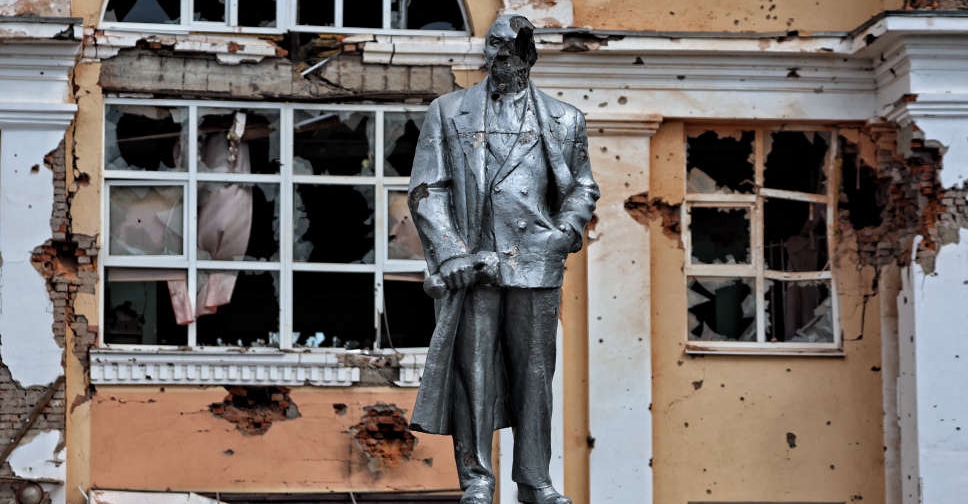
Ukrainian forces have continued to advance into Russia’s Kursk region, the largest incursion into Russian territory since World War II. On Sunday, Ukrainian President Volodymyr Zelensky said the goal of the offensive was to create a “buffer zone” to prevent Russian attacks from the border area. The statement comes after nearly two weeks of silence, since the start of the incursion on 6 August, from the leader regarding the operation.
Russian authorities announced a third bridge in Kursk was destroyed by Ukrainian forces in Karyzh village, while two others were damaged over the last few days. The first bridge was destroyed on Friday in Glushkovo village, around 13 kilometers west of Ukrainian troops inside of Russia, while the second was destroyed on Saturday in Zvannoye village, a further eight kilometers westward.
All three bridges run through the Seym River and reportedly facilitate the transfer of Russian military equipment used in Ukraine. Ukrainian Commander Mykola Oleschuk said, “The aviation of the Air Force continues to deprive the enemy of logistical capabilities with accurate air strikes, which significantly affects the course of hostilities!”
Russian officials said the destruction of the bridge will hinder the evacuation of civilians from the area.
At least 200,000 people have been evacuated from the border regions so far, according to Russian officials. Russia's emergency ministry has declared a federal-level emergency in the Belgorod region, which borders Kursk, the head of the ministry, Alexander Kurenkov, said on Thursday.
Russian forces appear to have constructed alternative routes across the river Seym; pontoon bridges are temporary, floating crossings used in the absence of permanent structures.
"Starting Aug. 19, we have been closing the entrance to five settlements in the region, relocating residents along with their personal belongings. In the Krasnoyaruzhsky district, we are temporarily closing the entrance to the village of Kolotilovka," Belgorod region Governor Vyacheslav Gladkov said in a statement on Telegram.
Ukrainian troops also took more than 100 Russian soldiers prisoners, Ukrainian Commander General Oleksandr Syrskyi said.
Kyiv says it controls nearly 1,000 square kilometers (about 621 square miles) of Russian territory, as of 18 August, spanning both the Kursk and Belgorod regions.
Meanwhile, Russian attacks in Ukrainian territory continue to take place. On Tuesday, Russia launched its fifth missile attack on Kyiv this month, Ukraine's military said. The latest attack on the capital, which has reportedly been repelled by air defense systems, was preceded by a drone attack on Monday evening.
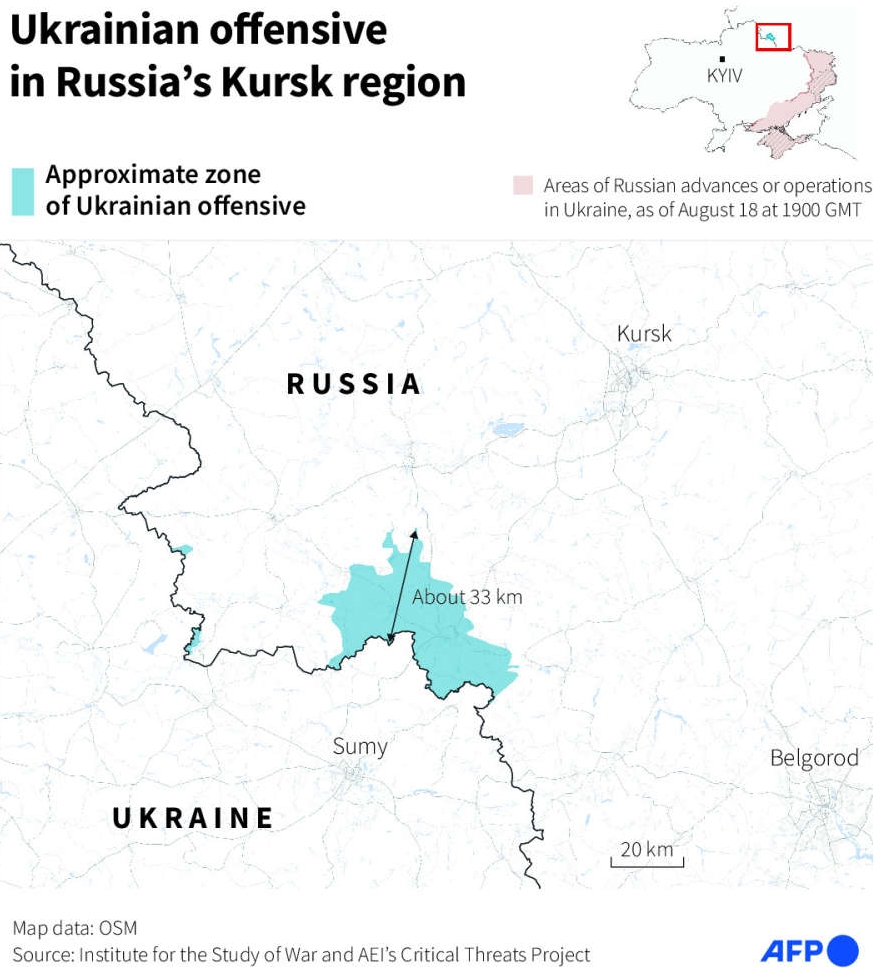
Will Ukraine's incursion change the war?
Before the 9 August offensive, Russian forces were making gains in Ukraine. By the end of July, Russia launched its largest assault in eight months, targeting Donetsk from areas close to Bakhmut and seizing key supply routes and several settlements. Russian assaults also increased pressure on the strategic eastern logistics hub of Pokrovske, with a wave of civilians fleeing, using warplanes and artillery fire to support waves of infantry assaults in the area.
Zelenskyy has claimed the purpose of the offensive is to create a buffer zone, preventing Russian forces from launching attacks into Ukraine and moving military equipment to border areas. Creating buffer zones has been a spoken strategy previously seen in the war. Last May, Russian President Vladimir Putin said that Moscow’s offensive in Ukraine’s northeastern Kharkiv region, launched in response to Kyiv’s repeated shelling of Russia’s Belgorod region, aimed to create a buffer zone, with no plans to capture the city.
While the creation of buffer zones has been visited in the war before, there’s more to Ukraine’s recent incursion into Russia.
Occupying Russian territory ahead of any ceasefire talks will give Ukraine some leverage in negotiations, making sure that Russia has something to trade for concessions. Talks were set to begin between Russia and Ukraine in Qatar’s capital Doha this month, with the aim of halting attacks on energy infrastructure from both sides. However, Ukraine’s offensive has suspended the negotiations. While the Russian delegation did not officially cancel the talks, they requested more time to reassess their position. In response, Qatar decided to delay the summit, according to a report from the Washington Post. Previously planned talks have also been canceled due to mutual military aggression. Donald Trump has promised an escalated resumption of ceasefire talks if he wins the upcoming U.S. election, leaving Ukraine to gain as much leverage before this potentially takes place.
The incursion could have also aimed to redeploy Russian forces from occupied territories in Ukraine amid a shortage of personnel- most pertinently from Donetsk. Ukrainian forces have rejected this claim, saying Russian forces remain stationed at Pokrovske, contrary to some previous reports.
"They are not planning to withdraw and redeploy their troops from this direction. The Pokrovske direction continues to be the hottest because the enemy's manpower constantly carries out assaults—despite losses and despite all our efforts to prevent the enemy from advancing and breaking through our defense line. Still, the enemy... there are many of them, and they keep coming and coming," Lieutenant Colonel Mykola Koval, press officer of the 14th Brigade of the National Guard of Ukraine, said on 19 August.
However, “some troops” were pulled out of southern Ukraine to Russia after the Kursk incursion. “Russia has relocated some of its units from both Zaporizhzhia and Kherson regions of Ukraine’s south,” Dmytro Lykhoviy, a Ukrainian army spokesman, told POLITICO.
Analysts have sown doubt in Ukraine’s operation given the country’s own shortage of military personnel. It has pulled together what was available and committed to a new axis. There is a limit to how far this force can push before it overextends itself and Russia begins sending further reinforcements; Ukraine would need to hold the ground until negotiations.
While the long-term effectiveness of the incursion has been doubted by analysts, most have agreed it has boosted morale among the military and civilian populations- showcasing Russia’s intelligence failure and Ukraine’s ability to pull off an operation of this size.
Russia blames the West for Ukraine's incursion
An aide to Russian President Putin said the West and NATO assisted Ukraine in planning the attack on Kursk. Washington denied the claims, saying Ukraine had not given them any advance notice of the operation.
"Without their participation and direct support, Kyiv would not have ventured into Russian territory," influential veteran Kremlin hawk Nikolai Patrushev said.
Russia has also said Ukraine used Western-made weapons inside its territory, destroying bridges in Kursk. “For the first time, the Kursk region was hit by Western-made rocket launchers, probably American HIMARS,” Maria Zakharova, a spokeswoman for the Russian Ministry of Foreign Affairs, said on a social media platform.
Meanwhile, Ukrainian President Zelenskyy called on his Western allies for additional aid amid the operation and Russia’s assault in Pokrovske, Toretsk, and Chasiv Yar.
“Our guys are doing great on all fronts. However, there is a need for faster delivery of supplies from our partners,” Zelenskyy said on Sunday.
Germany has provided a new package of military aid to Ukraine, it was announced on Monday-including 14,000 rounds of ammunition, 26 drones, and more than 100 rifles. according to Kyiv's defence ministry.
Political wrangles in the U.S. and Europe have led to billions of dollars held up over the last year, leading to a relative decline in foreign assistance. Ukraine was already facing an ammunition shortage as Western powers struggled to maintain supplies. In Early June, the Biden administration extended a 10-year security guarantee to Ukraine during a G7 meeting in Italy, that will see the encouragement of U.S. defense companies to establish joint ventures with Ukraine. During the meeting, the group agreed to loan Ukraine USD 50 billion from the interest generated from the USD 260-300 billion in Russian central bank reserves frozen in the West, as punishment for the invasion.
Assistance from the U.S. is expected to dwindle if Republican candidate Trump takes office.
Belarus deploys troops to Ukraine border
On Sunday, Belarusian President Alexander Lukashenko said Kyiv stationed more than 120,000 soldiers along its border.
Lukashenko has been a staunch ally of Russian President Putin. In response to Ukraine’s activity, Minsk reportedly deployed nearly a third of its armed forces along the entire border.
“Seeing their aggressive policy, we have introduced there and placed in certain points – in case of war, they would be defence – our military along the entire border,” BelTA quoted Lukashenko as saying in an interview with Russian state television.
The president added his troops will be on the offensive should Ukraine attempt to enter Belarus.
On Monday, Belarus said it had sent aircraft, air defence forces, and armoury to its border with Ukraine. "The group has been significantly increased, and at the moment they are on duty at the southern borders of our country," Commander of the Air Force and Air Defence of Belarus Major-General Andrei Lukyanovich, told the state-owned CTV broadcaster.
Ukraine said it had not seen an increase in Belarusian troops on the border and called Lukashenko's statements "rhetoric" aimed at pleasing Putin.
Following Russia’s invasion in February 2022, Ukrainian relations with Belarus deteriorated. Ukraine accused Belarus of hosting Russian forces and serving as a base for Russian military activity. Since then, Belarus has transitioned into a reported supplier of military equipment and munitions, with a drawdown of Russian troops in the country. Despite this, Ukraine maintains limited relations and a diplomatic presence in Minsk, serving as a means of assurance against attacking the territory. Analysts have said the reported buildup of Ukrainian troops at the border serves as a show of force amid the incursion into Russia, as opposed to a planned attack.



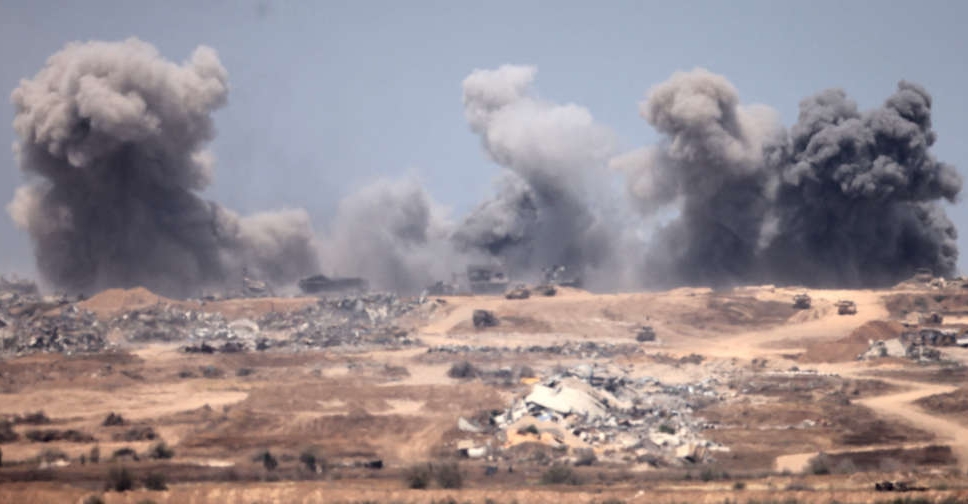 Qatari PM: Ceasefire talks on Gaza show signs of progress
Qatari PM: Ceasefire talks on Gaza show signs of progress
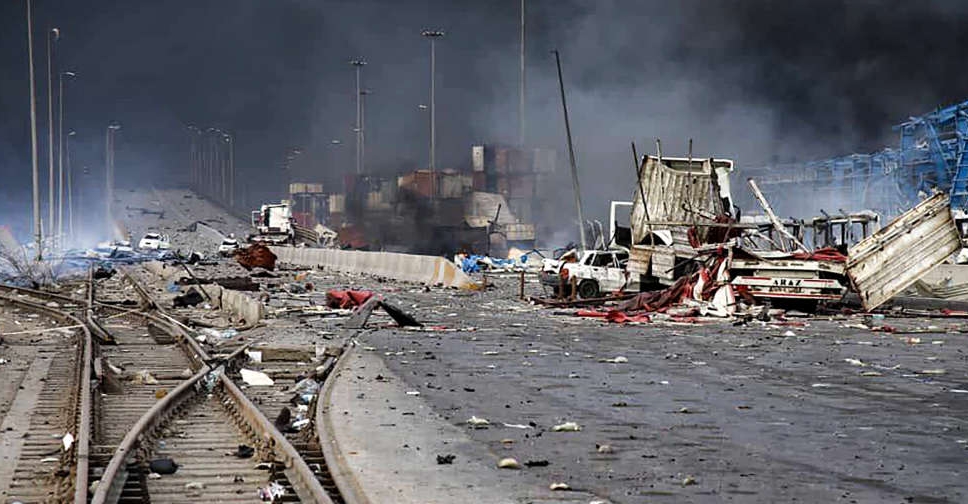 More than 700 injured in Iran's explosion
More than 700 injured in Iran's explosion
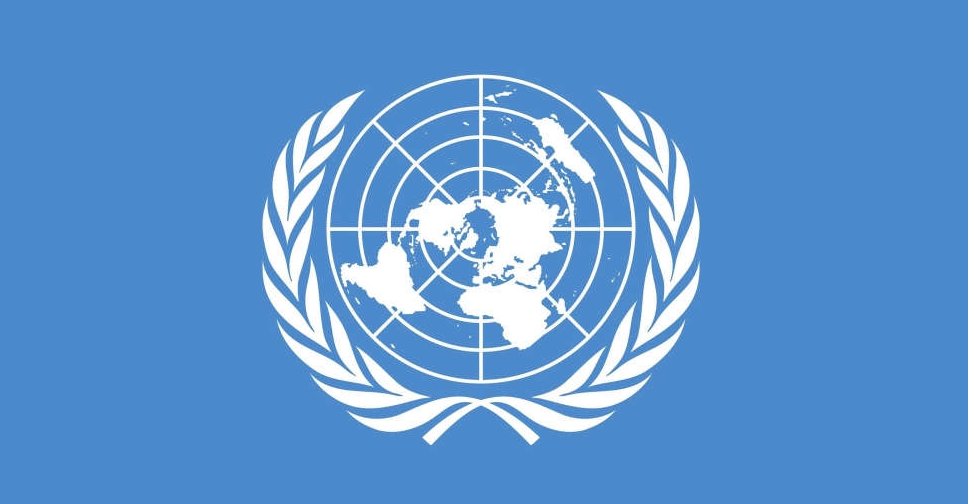 UN warns funding cuts threaten vital aid
UN warns funding cuts threaten vital aid
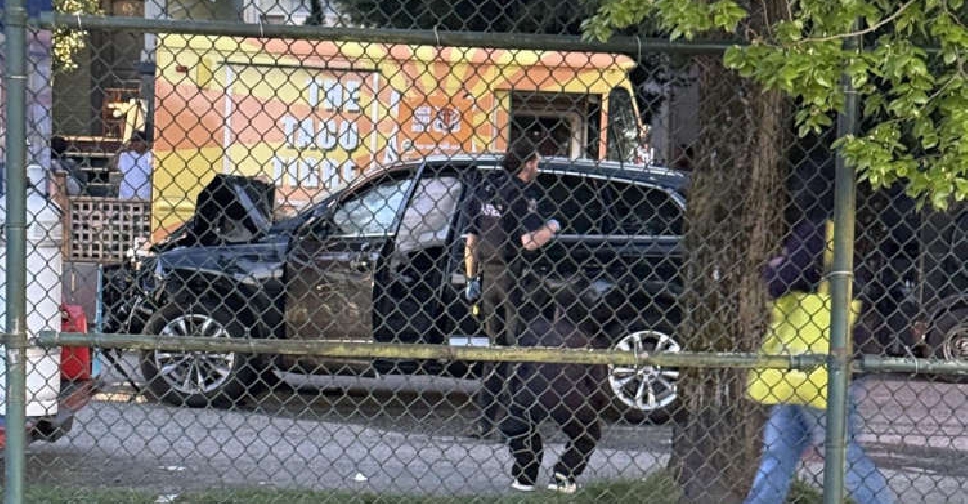 Multiple dead in Vancouver after vehicle plows into street festival
Multiple dead in Vancouver after vehicle plows into street festival
